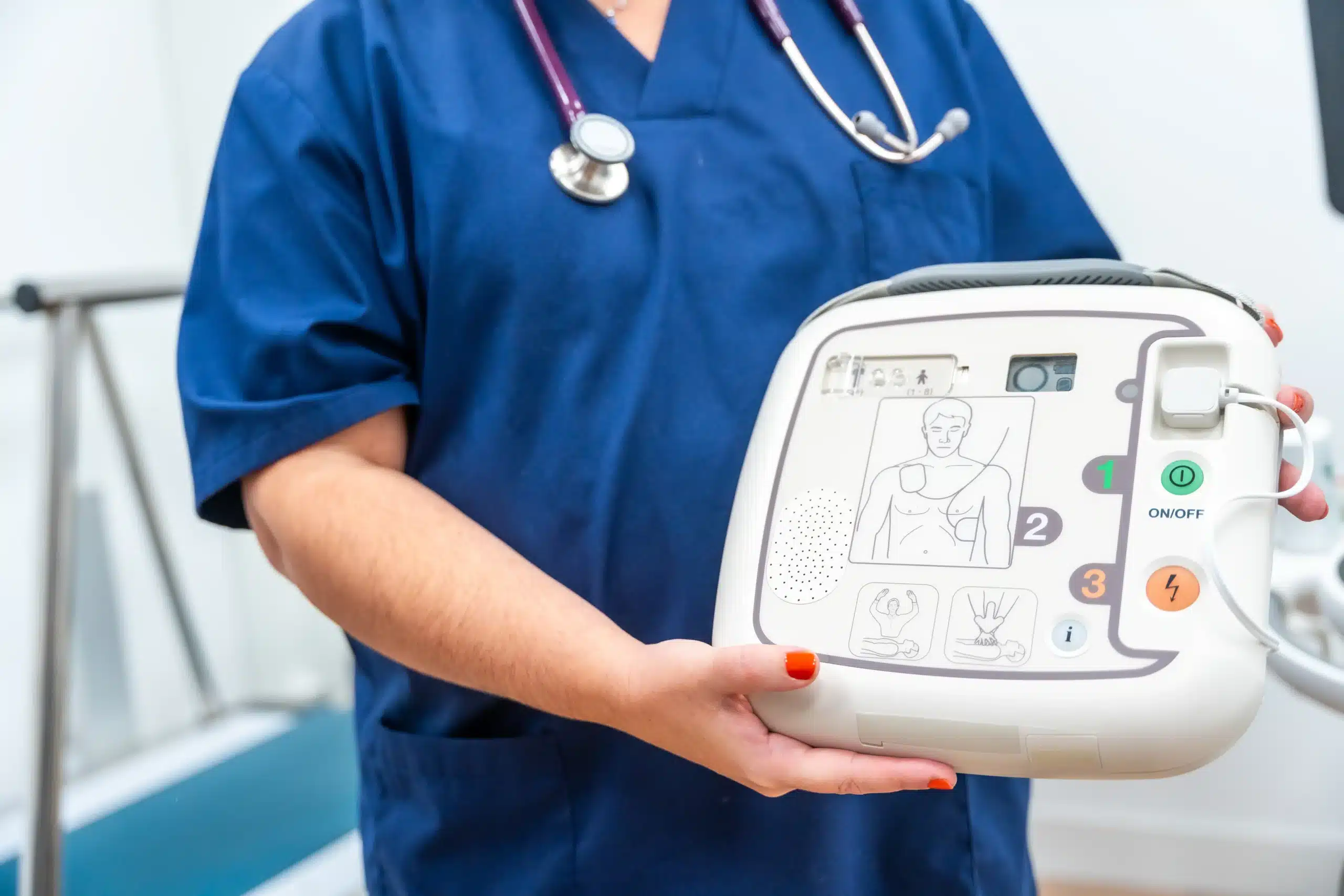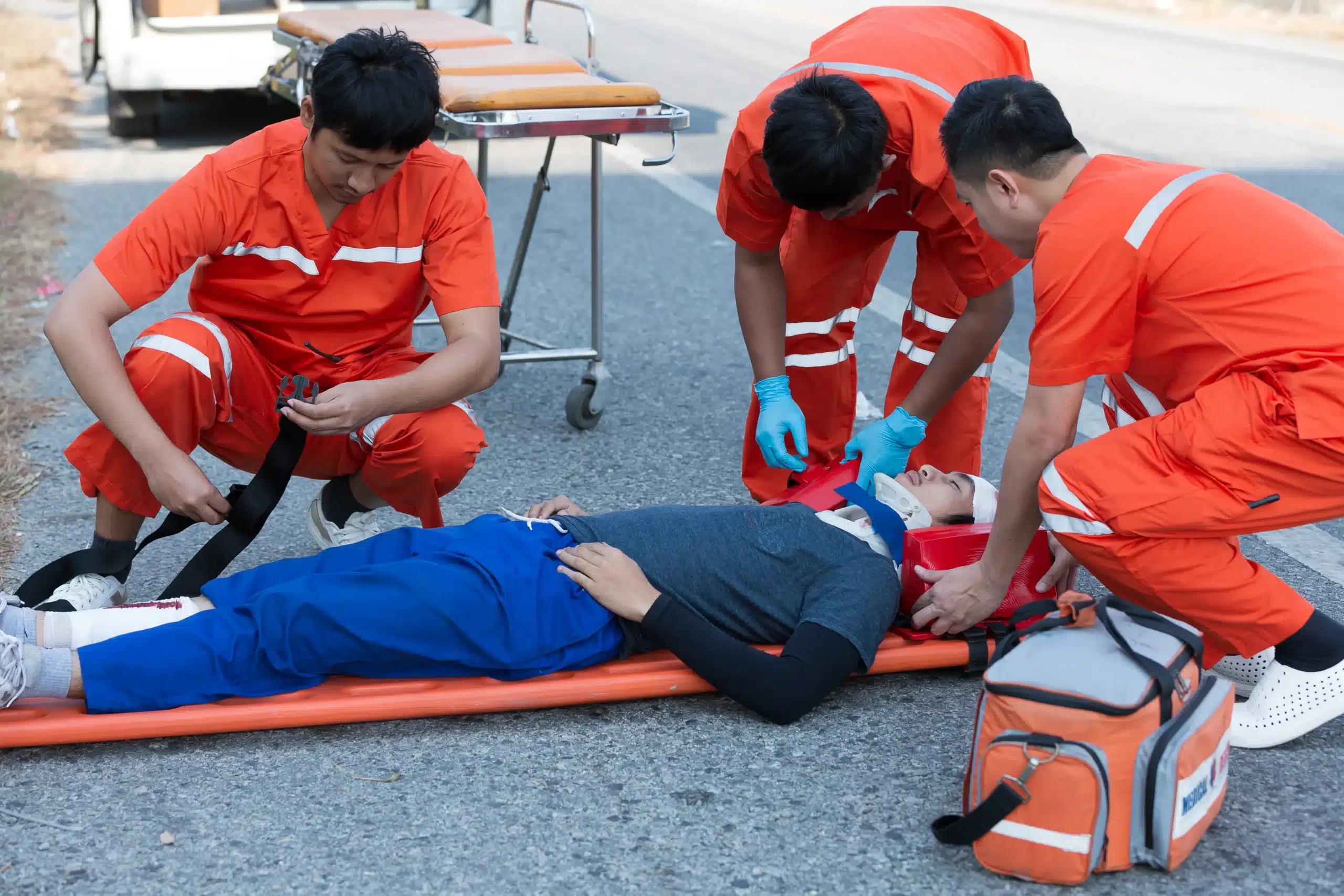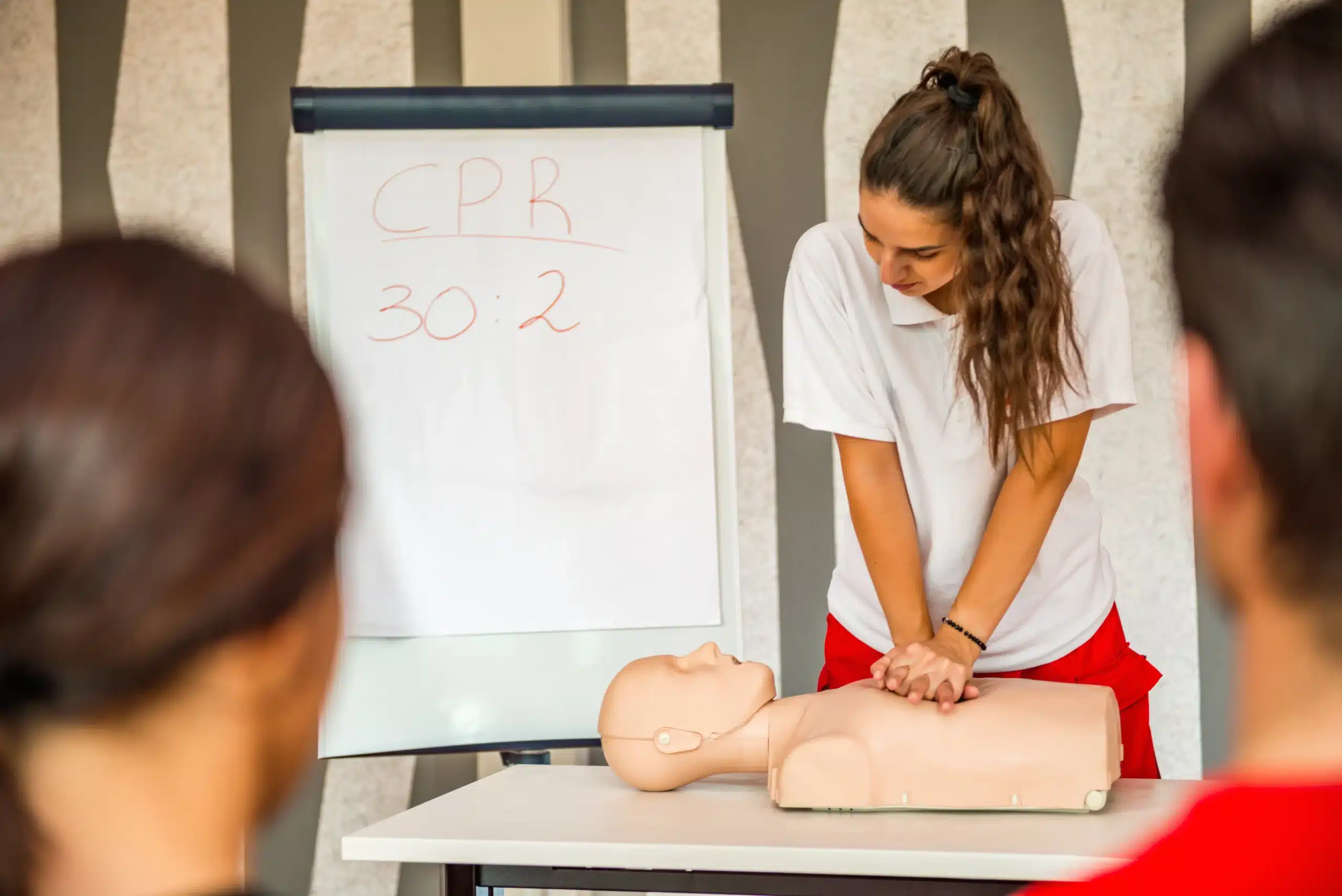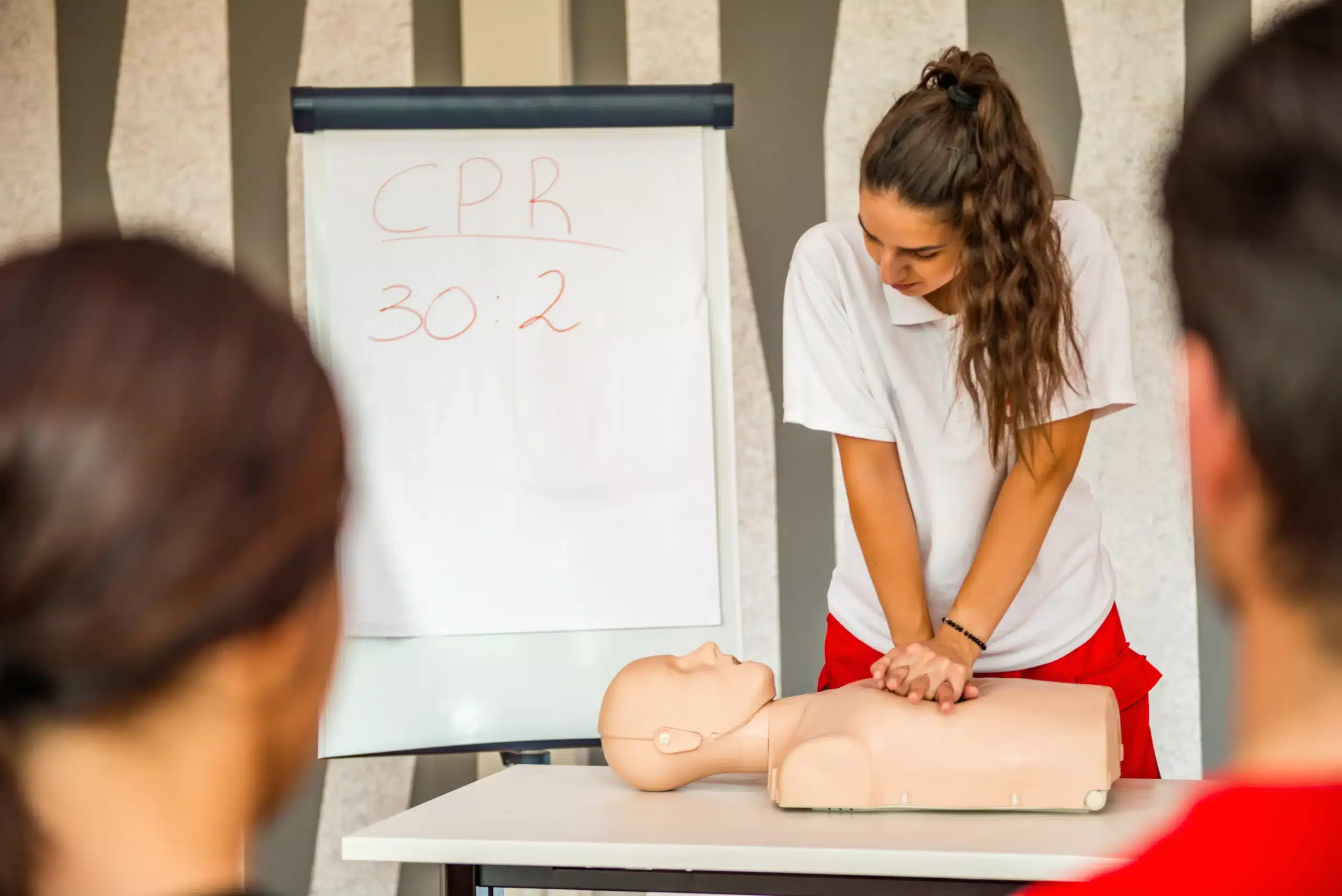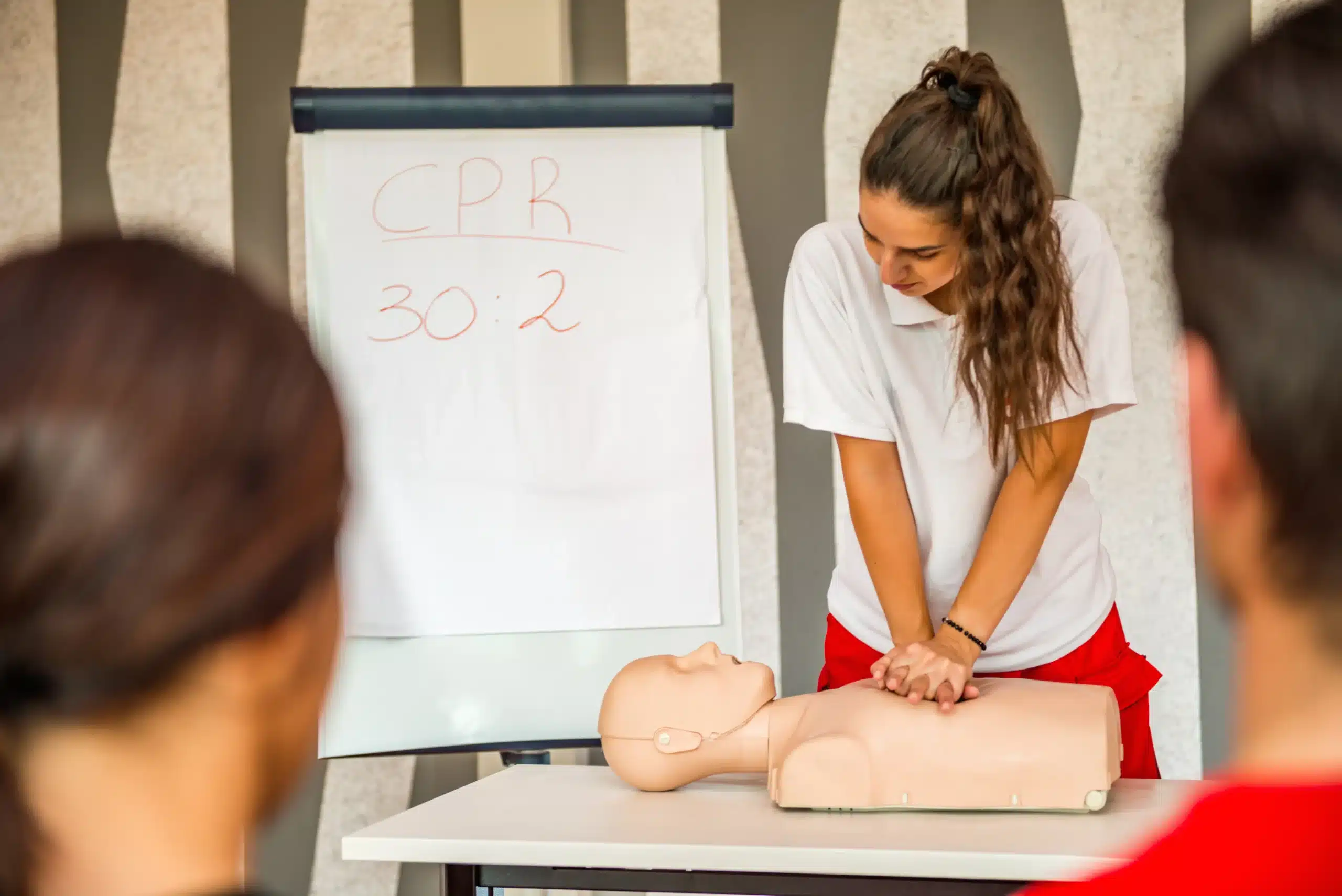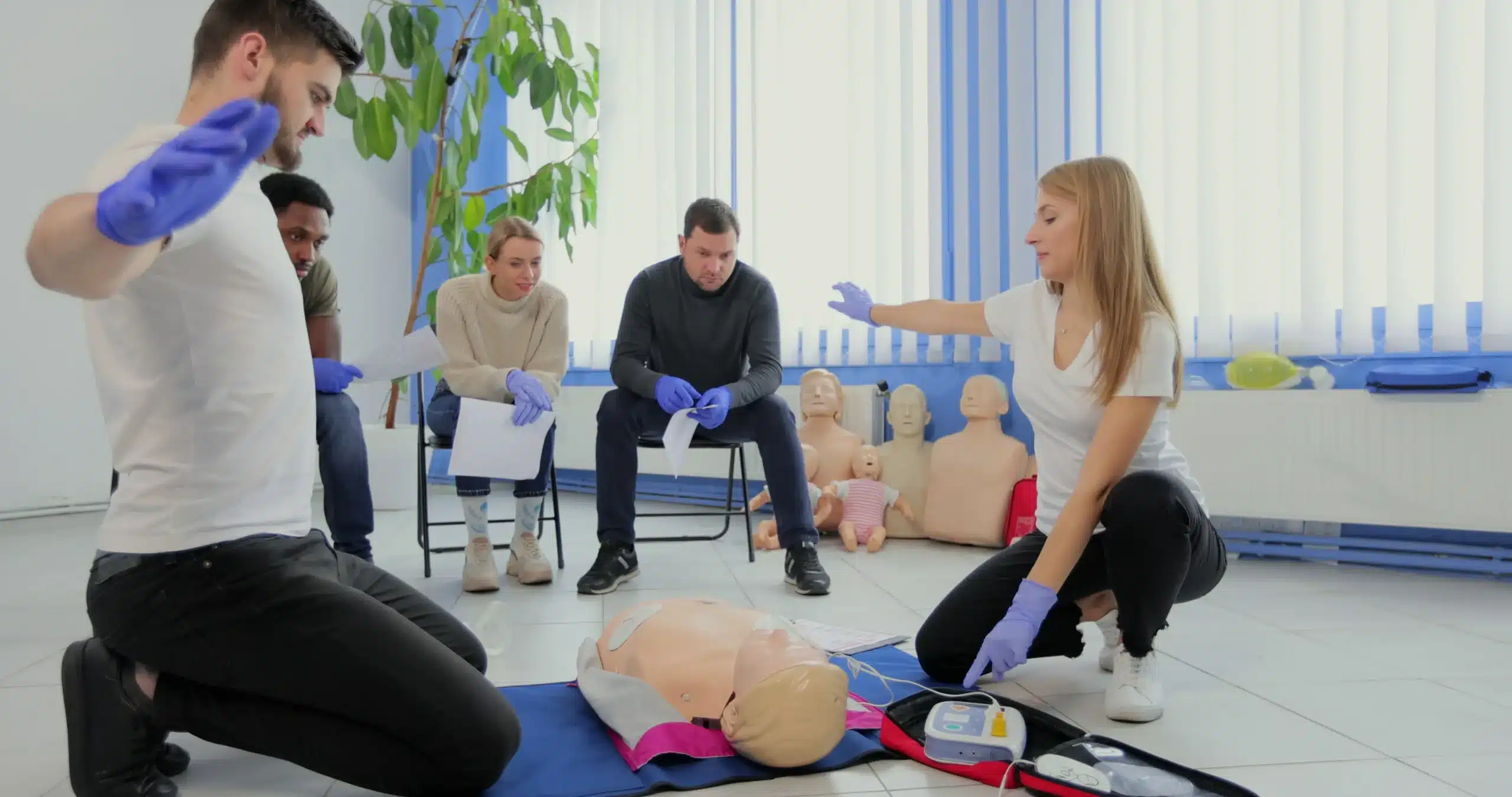Every second counts in a medical emergency, especially when a child is involved. Knowing pediatric CPR and first aid can be the difference between a positive outcome and a tragedy. These skills are not just for medical professionals; they are essential for anyone who interacts with children regularly. Pediatric CPR and first-aid training in Concord provides comprehensive instruction on how to respond to various emergencies, from minor injuries to life-threatening situations. This article will explore the importance of this training, highlight key differences between adult and pediatric CPR, and guide you in finding the right training program in Concord to meet your needs.
Key Takeaways
- Pediatric emergencies require a specialized response: CPR and First Aid techniques for infants and children differ significantly from adult procedures. Equipping yourself with these specific skills ensures you can provide effective and safe care when seconds count.
- Accessible training empowers confident action: High-quality, affordable training options are available locally, making it easier than ever to gain these life-saving skills. Look for programs that offer hands-on practice, convenient scheduling, and certified instructors.
- Preparedness benefits everyone: Learning Pediatric CPR and First Aid provides lasting peace of mind, knowing you can respond effectively in a crisis. These skills create safer communities and empower individuals to make a real difference in the lives of children.
What is Pediatric CPR and First Aid?
Pediatric CPR and First Aid training gives parents, caregivers, and anyone working with children the skills to handle emergencies involving infants and kids. It empowers you to confidently step in and provide appropriate care when seconds count. This specialized training covers a range of life-threatening situations, from choking and drowning to sudden cardiac arrest and allergic reactions.
Why specialized training matters
Thousands of children experience out-of-hospital cardiac arrests each year. A report indicates a surprisingly low percentage of parents feel prepared to perform CPR on their child. This highlights how critical it is to acquire these life-saving skills. Pediatric emergencies demand a swift, specific response, and specialized training makes all the difference.
How pediatric CPR differs from adult CPR
CPR techniques vary significantly depending on the age of the person needing help. Infants, children, and adults have different physiological needs, so the way you administer CPR changes accordingly. Understanding these differences is essential for providing effective aid. Factors like the size of the child, the force used for chest compressions, and the method for opening the airway are all tailored to the individual’s age.
Common childhood emergencies
Childhood emergencies can happen anytime, anywhere. Common incidents like choking, drowning, and allergic reactions require immediate, targeted action. Learning to recognize the signs of these emergencies and how to respond appropriately can prevent serious complications. Pediatric First Aid training equips you with the knowledge and skills to handle these situations calmly and effectively.
Debunking pediatric CPR myths
Many people hesitate to pursue CPR training because they believe it’s too complex or that they’ll do something wrong. The truth is, CPR training is straightforward and designed for everyone, regardless of medical background. Another common misconception is that CPR certification requires constant renewal. While recertification is a good idea, the core skills you learn will always be valuable. Don’t let these myths prevent you from gaining the confidence to act in an emergency.
Where to Find Pediatric CPR & First Aid Training in Concord
Finding the right pediatric CPR and first aid class can feel overwhelming, but several excellent resources are available locally. Here are a few options to consider in the Concord area:
Concord CPR Classes
Concord CPR Classes offers a range of training options, including pediatric CPR and first aid courses. They understand the importance of specialized training for children and tailor their instruction to meet those specific needs. Serving Concord, Walnut Creek, and Pleasant Hill, their central location makes accessing these vital skills convenient. They also offer group discounts, making it a practical choice for organizations or groups of friends and family who want to learn together.
American Red Cross
The American Red Cross is a trusted name in emergency preparedness and offers a combined Adult and Pediatric First Aid/CPR/AED course. This comprehensive course covers essential life-saving techniques for both adults and children, equipping participants to handle a variety of emergency situations. The certification earned is valid for two years.
CPR Training Center
The CPR Training Center provides American Heart Association (AHA) certified courses, including Pediatric CPR and First Aid. They offer flexible scheduling with options for individuals or groups, and also provide discounts for group registrations. This makes their training accessible and affordable.
CPR Education
CPR Education focuses on on-site training, bringing the instruction directly to you. They offer Pediatric First Aid & CPR training tailored to various groups, including caregivers and educators. This specialized approach ensures participants receive relevant and practical skills.
What to Expect in a Pediatric CPR & First Aid Course
So, you’re thinking about taking a Pediatric CPR and First Aid course? Fantastic! Knowing what to expect beforehand can make the whole experience smoother and less intimidating. Here’s a rundown of what a typical course covers:
Course duration and content
Pediatric CPR and First Aid courses typically run for about three and a half hours, covering essential lifesaving skills for infants and children. Expect a combination of lectures, demonstrations, and hands-on practice. You’ll learn how to recognize and respond to various emergencies, from choking and breathing difficulties to sudden cardiac arrest and injuries. The American Heart Association provides detailed information on course content.
Certification and validity
Upon successful completion of the course, you’ll receive a certification valid for two years. This certification is often digital, making it easy to access and verify. It usually covers both adult and pediatric CPR/AED, giving you a well-rounded skill set.
Hands-on practice
The best way to learn lifesaving skills is by doing. These courses emphasize hands-on practice using mannequins, allowing you to build confidence performing CPR and other first aid techniques in a safe environment. Experienced instructors guide you through each step, offering personalized feedback and support.
CPR, choking, injuries, and environmental emergencies
A comprehensive course will prepare you for a range of pediatric emergencies. You’ll learn how to perform CPR on infants and children, relieve choking, and treat common injuries like burns and cuts. You’ll also learn how to manage sudden illnesses. Some courses also cover environmental emergencies, such as heatstroke and hypothermia. The American Red Cross offers a detailed curriculum covering these emergencies for both adults and children.
Online vs. in-person classes
Many training providers offer both online and in-person course options. Online learning allows for flexibility, while in-person classes provide direct interaction with instructors and classmates. Consider your learning style and schedule when choosing the format that works best for you. Blended learning, which combines online modules with in-person skills sessions, offers another approach. Concord CPR classes offer a variety of formats to fit your needs. Check out our website for more information on our course offerings.
Choosing the Right Pediatric CPR Course
Finding the right pediatric CPR course means looking at a few key things to make sure you’re getting top-notch training that prepares you to handle emergencies. Here’s what to consider:
Cost and Discounts
CPR course costs vary depending on the training type and level. Basic first aid and CPR typically range from $50 to $100. More specialized training, like Pediatric Advanced Life Support (PALS), is often more expensive. Check for providers, like Concord CPR Classes, that offer discounts for groups—a smart choice for families, community groups, or businesses.
Instructor Qualifications
Your instructor’s experience and qualifications play a big role in how well you learn. Instructors should have significant hands-on experience in emergency medical services, nursing, or a similar field. This practical background helps them provide real-world examples and answer your questions thoroughly. Understanding the typical requirements for CPR instructors can help you evaluate potential instructors.
Training Standards and Accreditation
It’s important to choose a course that meets recognized training standards. Look for programs accredited by reputable organizations like the American Heart Association. These organizations have high standards for their instructors, often requiring extensive training, such as the 15 hours for Heartsaver Instructors, to ensure they’re prepared to teach these essential skills. Accreditation also means your certification will be widely accepted.
Age-Appropriate Techniques
Pediatric CPR is different from adult CPR. A good pediatric first aid course focuses on techniques specific to the needs of infants and children. If you’re a childcare provider or educator, look for courses tailored to these professions. They often provide more in-depth training on recognizing and responding to medical emergencies common in younger age groups, as emphasized by the National Safety Council.
Focus on Practical Skills
Hands-on practice is key to mastering CPR. The best courses emphasize practical skills and give you plenty of opportunities to practice in a safe environment. Smaller classes are often helpful because they allow for more individual feedback and ensure everyone gets enough practice time. Prioritize courses that focus on hands-on learning, like those offered by CPR Educators, to build your confidence and skills in emergencies.
Learn Age-Specific CPR & First Aid
Knowing how to respond to both breathing and cardiac emergencies can make a real difference. This section covers the key differences in CPR and first aid techniques for infants and children.
Infant CPR (0-12 months)
Infant CPR is specifically designed for babies under one year old. It’s crucial to use gentler techniques than you would with an adult or child. For chest compressions, use two fingers placed just below the nipple line, compressing to a depth of roughly 1.5 inches. Taking an infant CPR class will build your confidence and teach you the precise skills to respond effectively.
Child CPR (1-8 years)
Child CPR applies to kids between one and eight years old. Use the heel of one hand for chest compressions, delivered at a depth of about two inches. The overall process is similar to adult CPR, but with important adjustments for a child’s smaller size. A dedicated CPR course will cover these nuances in detail.
Chest Compressions and Rescue Breaths
Both infant and child CPR involve cycles of chest compressions and rescue breaths, typically 30 compressions to two breaths. Rescue breaths are often critical for children experiencing cardiac arrest, as breathing problems are a frequent cause. Learning the correct technique is a vital part of any pediatric CPR training.
Using an AED on Children
An AED (automated external defibrillator) can be used on children over one year old. Most AEDs come with pediatric pads to reduce the energy delivered. If those aren’t available, adult pads can be used, ensuring they don’t touch. CPR certification often includes AED training, covering safe and effective use of this device.
First Aid for Common Pediatric Emergencies
Beyond CPR, understanding basic first aid for common childhood emergencies—like choking, burns, and cuts—is essential. A comprehensive first aid course will equip you to handle these situations. The training covers a range of skills, from dislodging an object from a child’s airway to treating minor wounds.
The Value of Pediatric CPR & First Aid Training
Knowing how to respond to a medical emergency involving a child can make all the difference. Pediatric CPR and First Aid training equips you with the skills to provide immediate care in such situations. This isn’t just about certifications—it’s about empowering yourself to act quickly and effectively when a child’s life might be on the line.
Build Confidence in Emergencies
As a parent or caregiver, few things are more frightening than the thought of your child facing a medical crisis. Yet, studies show a surprising number of parents feel unprepared to handle such a situation. First Response Safety Training points out that only about a third of parents feel confident performing CPR on a child. Pediatric CPR and First Aid training gives you the confidence to respond effectively in an emergency, empowering you to take immediate action, potentially stabilizing a child until professional medical help arrives.
Community Impact
Learning these skills creates a ripple effect, benefiting not only the children in your care but also the wider community. When more people are trained in Pediatric CPR and First Aid, our communities become safer and more resilient. Emergency First Response highlights the current statistics, showing that a significant portion of adults aren’t comfortable performing CPR. By becoming trained, you contribute to a network of prepared individuals ready to assist in times of need. This can be especially valuable in situations where quick action is crucial, like at schools, community centers, or even just in your own neighborhood.
Lifelong Value of These Skills
These skills aren’t just for today; they stay with you for life. Whether you’re caring for your own children, grandchildren, or simply encountering an emergency involving a child, the knowledge and skills you gain will always be relevant. Having these certifications can enhance your professional qualifications, making you a more valuable asset in various fields, from healthcare to education and childcare. CPR Certification Now offers resources on CPR and First Aid best practices.
Why Recertify?
Medical guidelines and best practices are constantly evolving. Regular recertification ensures your skills and knowledge remain up-to-date, reflecting the latest advancements in emergency care. This reinforces your confidence and demonstrates your commitment to providing high-quality care. Many certifications require periodic renewal to remain valid. CPR Training Company offers guidance on becoming a certified instructor. Staying current through recertification ensures you’re always prepared to provide the best possible care.
Related Articles
- Pediatric Advanced Life Support (PALS) in Concord, CA – Concord CPR Classes
- CPR Certification in Concord: Your Complete Guide – Concord CPR Classes
- First-Aid Training in Concord: Your Complete Guide – Concord CPR Classes
- Common CPR Myths and Truths Revealed – Concord CPR Classes
- CPR Classes in Concord, CA: Your Complete Guide – Concord CPR Classes
Frequently Asked Questions
Is pediatric CPR drastically different from adult CPR?
Yes, there are important differences. A child’s body is still developing, so the techniques used for CPR are modified to suit their physiology. This includes variations in the force of compressions, hand placement, and how you open the airway. A specialized pediatric CPR course will teach you these critical distinctions.
What if I freeze up during a real emergency?
It’s natural to feel apprehensive about responding to a real emergency. That’s why hands-on practice during a CPR course is so important. Repeated practice in a safe learning environment builds muscle memory and confidence, helping you react instinctively and effectively under pressure.
Are online pediatric CPR courses as good as in-person classes?
Both online and in-person courses have their advantages. Online courses offer flexibility, while in-person training provides valuable interaction with an instructor and the opportunity for immediate feedback. Consider your learning style and which format best suits your needs. Some providers even offer blended learning, combining online modules with in-person skills sessions.
How often do I need to renew my pediatric CPR certification?
Most pediatric CPR certifications are valid for two years. Recertification is recommended to stay up-to-date with the latest guidelines and best practices, ensuring you can provide the most effective care.
Where can I find a reliable pediatric CPR class in Concord, CA?
Several reputable organizations offer pediatric CPR training in Concord, including Concord CPR Classes, the American Red Cross, and various other training centers. Look for classes that meet recognized standards and are taught by qualified instructors with relevant experience. Consider factors like cost, location, and scheduling options when making your choice.


